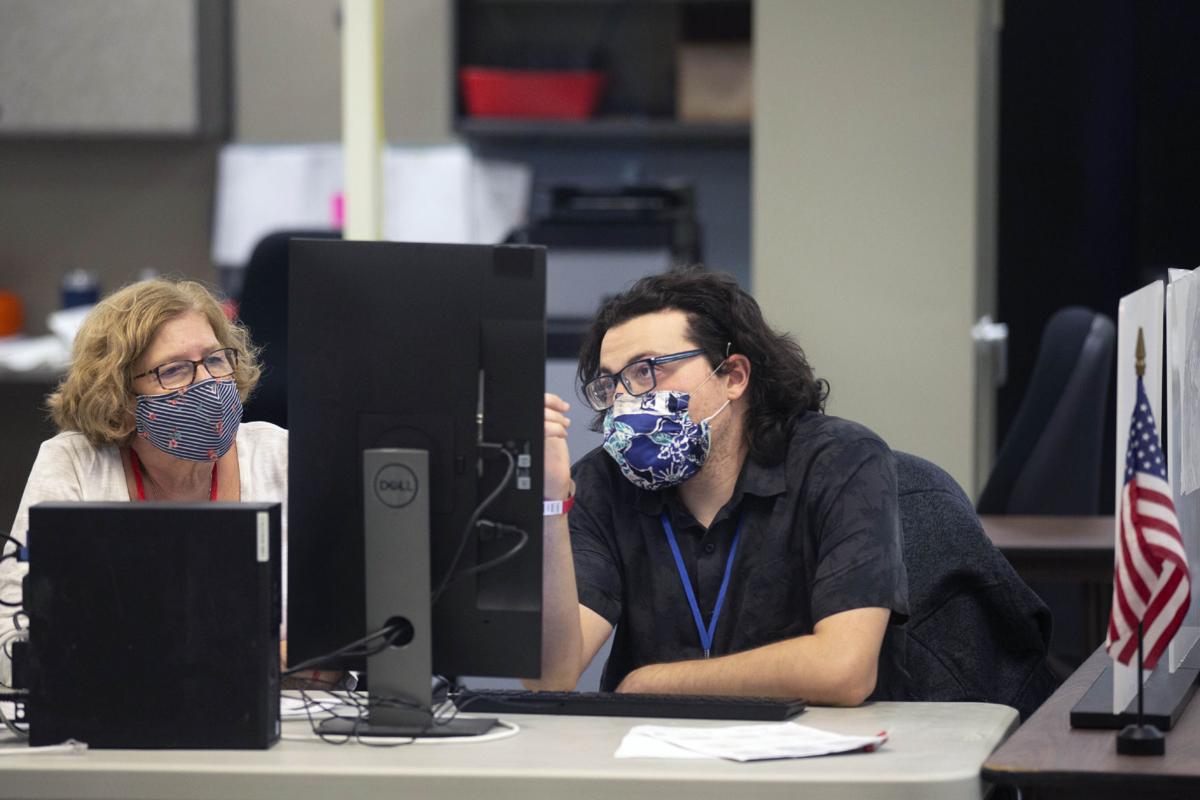PHOENIX — Maricopa County supervisors and state senators head back to court Thursday as they continue to fight over what kind of audit of the 2020 election is necessary — and who has the power to do it.
The hearing before Maricopa County Superior Court Judge Timothy Thomasson comes two days after county officials reported the audit they ordered conducted of its voting equipment came up absolutely clean.
That report concluded there was no evidence that:
- Votes were switched from one candidate to another;
- Equipment was using modified software;
- Voting machines were connected to the internet;
- Malicious software or hardware had been installed on tabulators or the system.
“These audits are an affirmation for everyone’s hard work and prove what my colleagues and I have been saying all along: Our elections were run with integrity and the results we canvassed were accurate,” said Supervisor Clint Hickman, one of four Republicans on the board.
Steve Gallardo, the lone Democrat supervisor, agreed.
“The audits clearly dispel the notion that somehow the November election was rigged,” he said.
But Senate President Karen Fann told Capitol Media Services more needs to be done to determine what, if anything, went wrong with the count of the 2020 general election.
“When there are this many questions that people are questioning our electoral system, I think we owe it to them to say ‘We’re going to get those answers for you, and we’re going to show that our system is good and secure,’” she said. “And if we find any irregularities, we are going to prove to you that we’re going to fix those irregularities.”
Fann said, what the county performed doesn’t get to those questions.
Some of it, she said, is because the companies they hired are not certified forensic auditors.
Beyond that, Fann said there are other questions that the audit never addressed
“I do know that they did not do an in-depth forensic audit enough to help us figure out how many mail-out ballots went out to people that do not live in Arizona any more,” she said. Then there are allegations about ballots that went to dead people or a large number of ballots showing up at a house where only two people live.
All that, Fann said, leads to questions about what happened to all those alleged ballots.
But a key point in what Fann and her colleagues want is access to all of the actual 2.1 million ballots to determine if the count reported actually matches the votes counted. It is up to Thomasson to decide if they are entitled to that.
The audit done for the county does look at some of that — but only indirectly
Auditors from Pro V & V looked at the question of whether the Dominion Voting Systems equipment or software was switching votes from one candidate to another, one of the charges leveled by Trump supporters, using what a “test deck” of ballots pre-marked with known results. All totaled, they said the tally of more than 1.5 million specific ballot positions came out 100% accurate.
Only thing is, these were not the actual ballots voted in November, in keeping with the county’s position that they have to be locked up.
The audit produced other results.
Pro V & V and SLI Compliance, the other firm hired by the county, also said they looked for evidence that the tabulation system was transmitting information outside what they said was an “air-gapped system” within the county. They said they found no issues.
Both also conducted what they called a “full forensic clone” of the hard drive on the equipment which allowed them to examine not just what was there but also look for evidence of deleted files or hidden data. Here, too, they said they found no issues.
All that, however, is not good enough as far as the Senate is concerned. And Fann said the only way the questions of constituents will be answered is if there is an actual examination of the equipment and the ballots by someone chosen by the Senate.
Whether lawmakers are entitled to that is exactly what Thomasson is being asked to decide.
The county’s refusal to turn over access is based on several arguments.
“The (Arizona) Constitution commands that ballots be kept secret,” attorney Steve Tully who represents the county told Thomasson in his legal filings. And he said Arizona law spells out that after the formal canvass of votes, the ballots are put into an envelope and kept unopened for up to 24 months, after which they must be destroyed.
None of this has stopped the Senate from issuing a subpoena for access to them.
But Tully said subpoenas are permissible only when there has been a vote of the full Senate to investigate the 2020 general election. That, he said, did not occur.
Instead, he said, the subpoenas all result from “months of conspiracy theories rejected by the courts and debunked by the press.”
There are provisions for a judge to decide whether to enforce a subpoena. But he said that first requires a vote of the Senate to hold the supervisors in contempt.
But that failed when Sen. Paul Boyer, R-Glendale, refused to go along with his GOP colleagues.





